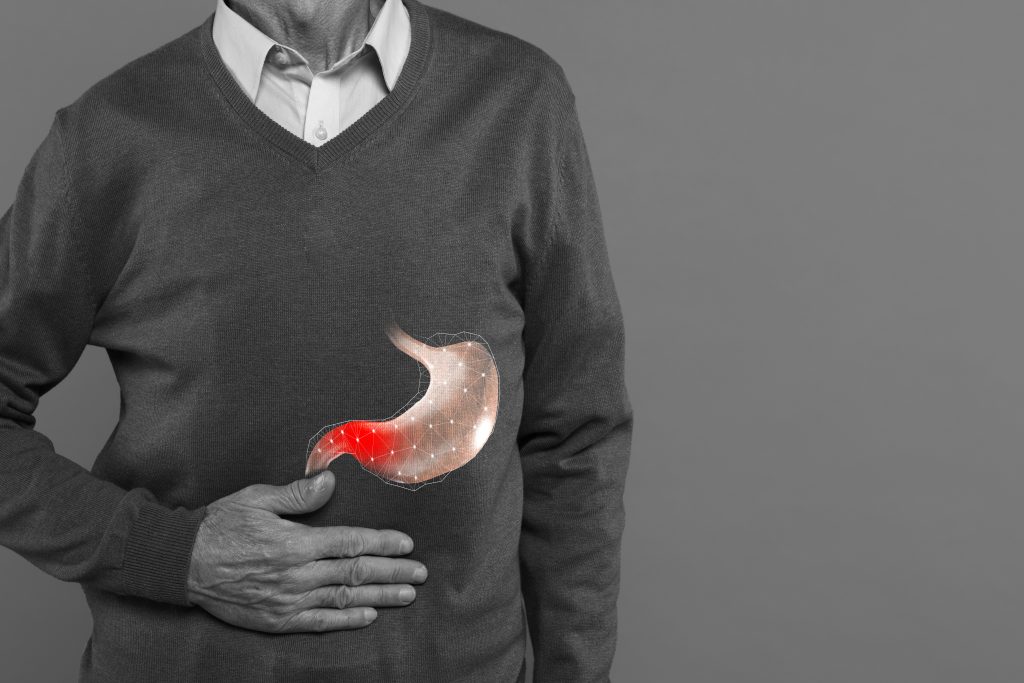Hepatitis B Treatment In Hyderabad

Hepatitis B is a serious infection that affects your liver. The infection is caused by the hepatitis B virus (HBV). Most people only have a short-term or acute infection that lasts less than six months. But for some people, the infection becomes long-lasting or chronic and lasts for more than six months. If you have chronic hepatitis B, it raises your chances of having liver problems like liver failure, liver cancer, or cirrhosis. Cirrhosis is a condition that leaves permanent scars on your liver.
Currently, there is no cure for this infection, but there is a vaccine that can prevent hepatitis B. Antiviral medications are also available to treat the condition. For the best hepatitis B treatment in Hyderabad, consult a gastroenterologist known for his expertise in treating liver patients
What are the symptoms of Hepatitis B ?
Most adults with hepatitis B recover completely, even if they have severe symptoms. But infants and children have a higher chance of having chronic hepatitis B infection.
Not everyone shows symptoms of hepatitis B. If you do, it can be mild to severe in the acute or early phase. They usually show up around 1 to 4 months after you’ve gotten the infection. But sometimes, they might appear just two weeks after you got infected. Some people, especially kids, might not have any symptoms at all.

Typical symptoms of Hepatitis B include:
- Abdominal pain
- Dark-colored urine
- Fever
- Joint and muscle pain
- Loss of appetite
- Nausea and vomiting
- Weakness and fatigue
- Jaundice
Whether you have symptoms or not, you are contagious. Therefore, it is important to maintain precautions to prevent the spread of the infection.
How do you get hepatitis B?
The infection spreads when you come into contact with the blood, open sores, or body fluids of a person who is infected with HBV. This can occur in the following ways:
- From mother to child
- Through unprotected sex
- If you have contact with an open wound
- Sharing needles or syringes
- Sharing a toothbrush or razor
- Accidentally getting pricked by a sharp object that's infected

HBV can stay alive on surfaces outside the body for around seven days. So, if tools or things like toothbrushes or razors haven’t been properly cleaned, they can still carry the virus. This includes things used in medical procedures and everyday items.
Apart from blood, HBV also lives in other body fluids like saliva. But unlike some viruses, hepatitis B is not believed to be transmitted from saliva. This means you’re not likely to get it by sharing food, or utensils, or if someone coughs or sneezes near you.
How is hepatitis B diagnosed?
The doctor will ask you about your health history, any family history of liver disease and the symptoms you are experiencing. He will do a physical examination to look for signs of liver damage, such as yellowing skin or belly pain. The definite way to diagnose hepatitis B is through tests, which include:
Blood tests
Helps in determining whether the condition is acute or chronic, revealing any past infections, checking if you’re immune to the condition, and assessing if the infection is affecting your liver function.
- Liver ultrasound: A special kind of ultrasound, called transient elastography, is done to determine how much damage has happened to your liver.
- Liver biopsy: A small sample is taken to examine your liver damage.
Note* If you’ve been recently exposed to HBV and the virus is still in the early stages in your body, it might not appear in a blood test right away. The doctor might not be able to confirm an infection immediately, but they can still offer preventive treatment.
Screening healthy individuals for hepatitis B
Many people infected with hepatitis B may not show any symptoms for a long time. Identifying these carriers is crucial to prevent the spread of the virus. Your doctor might recommend a screening test if you:
- Are pregnant
- Live with a hepatitis B-infected person
- Have had sexual contact with an infected person
- Have a history of a sexually transmitted infection
- Have HIV or hepatitis C
- Have received a liver enzyme test with unexplained abnormal results
- Taking immunosuppressive medications
- Had organ transplant
- Use injected drugs
- Born in a hepatitis B-endemic place, such as Asia, the Pacific Islands, Africa, or Eastern Europe.
- Have parents or adopted children from regions where hepatitis B is common
What is the treatment for hepatitis B?
If you think you have been exposed to HBV, consult your doctor as soon as possible.
Prophylactic treatment: The doctor will provide you with the initial dose of the hepatitis B vaccine and a shot of hepatitis B immunoglobulin. This combination of antibodies offers short-term protection against the virus.
While both can be given within a week of exposure, their effectiveness in preventing infection is highest if administered within 48 hours.
Acute Infection Treatment: If you have been diagnosed with acute hepatitis B you will be provided supportive care such as IV fluids, IV nutrition, and pain relief medicines.
Other changes to your lifestyle might be necessary to manage your infection, like
- Eating a healthy and balanced diet
- Avoiding things that can damage your liver, such as alcohol consumption
Chronic Infection Treatment: After six months if blood tests indicate an ongoing infection, your doctor might suggest additional treatment, including medications to manage the virus and prevent damage to your liver.
Surgery: For complications like cirrhosis or liver cancer, surgery might be needed.
Liver Resection: The damaged part of the liver is removed which usually regenerates if enough healthy tissue remains.
Liver Transplant: If the liver gets completely damaged, a transplant might be necessary.
Surveillance: Regular checkups and tests will be advised to monitor your liver health every six months. These may include blood tests, imaging, and elastography.
Remember, treatment plans are individualized, so consult a specialized doctor for guidance.
If your body successfully fights off the infection within a few months, you become immune for life, which prevents you from getting it again. However, if you acquire it at birth, it’s unlikely to go away.
The most effective method is getting vaccinated. If you’ve received the hepatitis B vaccine, you’re protected from accidental exposure in your daily life. The vaccination series is usually given in three doses over a period of six months.
Other methods to reduce your risk include:
- Practise safe sex
- Stop using illegal drugs
- Avoid sharing personal items that might come into contact with blood, like toothbrushes, razors, medical tools, or needles.
- Be careful about body piercing and tattooing
- Before travelling to regions where the rate of infection is relatively high get the hepatitis B vaccine
Takeaway
Hepatitis B is a very contagious disease. It can lead to severe complications, some of which can be life-threatening. If you are infected, you should take precautions to avoid spreading the virus to other people. And without delay, begin your treatment.
Best Hepatitis B surgeon In Hyderabad

Dr. K V Dinesh Reddy
MBBS; MS (Gen.Surg); DNB (Surg.Gastro)
Dr K V Dinesh Reddy is the Hepatitis B surgeon In Hyderabad with over 10 years of experience in hernia treatment.
He has treated hundreds of hernia patients which makes him the Hepatitis B surgeon In Hyderabad and known as the Best Bariatric surgeon in Hyderabad.
He strongly believes that surgery should only be considered as a last resort and prefers a holistic approach to treatment. So, if a disease can be effectively treated with medication, he never recommends surgery.
Frequently Asked Questions
Here are answers to some of the questions you might have about Inguinal Hernia
For protecting against Hepatitis B, a highly recommended vaccine is the Hepatitis B vaccine itself, which is considered both safe and effective. This vaccine is typically administered in a series of three to four injections over a six-month period. It’s recommended for all infants at birth, unvaccinated children and adolescents, and adults who are at increased risk of infection. These include healthcare workers, people who live with someone who has Hepatitis B, and those who travel to areas with high rates of Hepatitis B. Getting vaccinated is a key step in preventing Hepatitis B, a serious liver infection, ensuring protection for both individuals
The duration of Hepatitis B treatment can vary widely depending on several factors, including the nature of the infection (acute or chronic) and the individual’s overall health. For acute Hepatitis B, treatment might not be necessary as many adults can clear the infection naturally within a few months. However, supportive care is often recommended to ease symptoms. For chronic Hepatitis B, treatment can be longer, sometimes lasting for years or even lifelong. The goal is to manage symptoms and prevent the virus from causing liver damage.
Hepatitis B treatment is very important for keeping your liver healthy over time. It works by attacking the virus in your liver, which helps lower the amount of virus and reduce swelling. This can stop the liver from getting really sick with conditions like cirrhosis (a hardening of the liver) or liver cancer. The treatment stops the disease from getting worse and makes the liver healthier.
Not treating hepatitis B can lead to serious health complications. Over time, it may progress to chronic liver disease, including cirrhosis, where the liver becomes scarred and its function declines. This condition can hinder the liver’s ability to process nutrients, hormones, and drugs, and remove toxins. Additionally, untreated hepatitis B significantly raises the risk of developing liver cancer. It can also lead to liver failure, a life-threatening condition requiring a liver transplant. Ignoring treatment allows the virus to continue damaging the liver, affecting overall health and potentially leading to fatal outcomes.
Alcohol consumption can significantly impact the effectiveness of hepatitis B treatment and the overall health of the liver. Drinking alcohol, even in small amounts, can accelerate liver damage, making it harder for treatments to work effectively. Alcohol can increase inflammation and liver cell damage, complicating the recovery process. For those undergoing treatment for hepatitis B, it’s crucial to minimize or completely avoid alcohol to give the liver the best chance to heal. Staying away from alcohol also helps medications work as intended, improving treatment outcomes.


